
Kaylyn Noah smooths her hand over a swatch of kente, a traditional Ghanaian woven fabric – green, yellow and red, stripes, blocks and zigzags.
“We call it a duku when you wrap it around your head,” said the 18-year-old from Green Valley Ranch in northeast Denver.
Kente is worn at weddings, ceremonies or after a child is born.
“We call them outdoorings. When we have a baby we take them out into the world for the first time.”
Softly, Kaylyn said she just might pack the piece of cloth in her suitcase this week. She is going out into the world, really alone, for the first time – to study at one of the most prestigious colleges in the world.
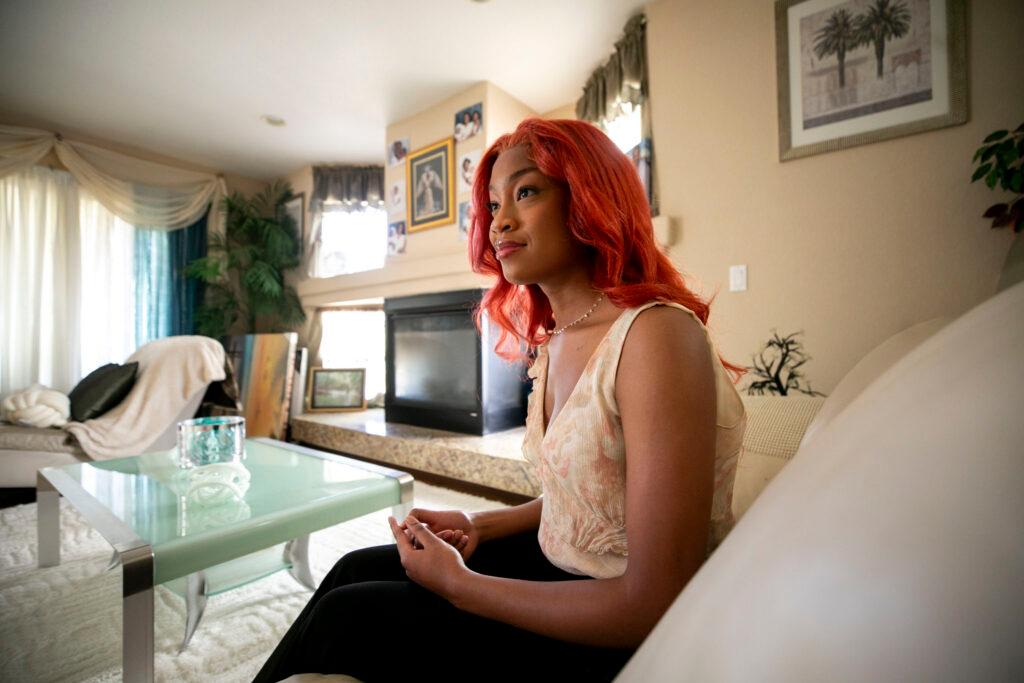
It takes courage to be the first in your family to go to college. Especially when you’re headed to Stanford University. But this week Kaylyn’s thinking about more than how she’ll fare on a campus where many of the students are wealthy and don’t look like her, or how she’ll handle the rigorous academics. She’s thinking more about how she’ll manage away from her tight-knit family and how to maintain connections with her Ghanaian culture.
“I try to keep my family and my culture very close to me, because at the end of the day that’s my identity, that’s who I am.”
A few years ago, landing an acceptance letter to Stanford seemed unimaginable. Her parents never went to college. They immigrated from Ghana. Her father works as a truck driver and her mother holds down the fort at home. She has two sisters. There’s not a lot of extra money floating around.
But the seeds of motivation and ambition sprouted early in Kaylyn.
“When I was little, I was going to go to Oxford University,” she laughed. “I was shooting really high for the stars.”
She thinks she heard about Oxford on television.
Kaylyn became a voracious reader. Her mother, Joyce Parker knew her daughter was going far after she won a competition in preschool after reading 250 books.
“And that’s where everything started going up and up and up, and she’s never stopped,” said Parker.
Her parents' sacrifice of leaving home helped push her forward.
“I was like, of course, if you can't do it, I’m going to do something for you. I’m going to show you that I’m thankful for coming to America so I can have a better life.”
‘I believe in the American Dream’
Parker said she will miss everything about her daughter – her greeting every morning in a British accent (“Mummy!”), her teasing. Some days Parker can’t believe her good fortune.
“I believe in the American Dream,” she said sitting in the family room.
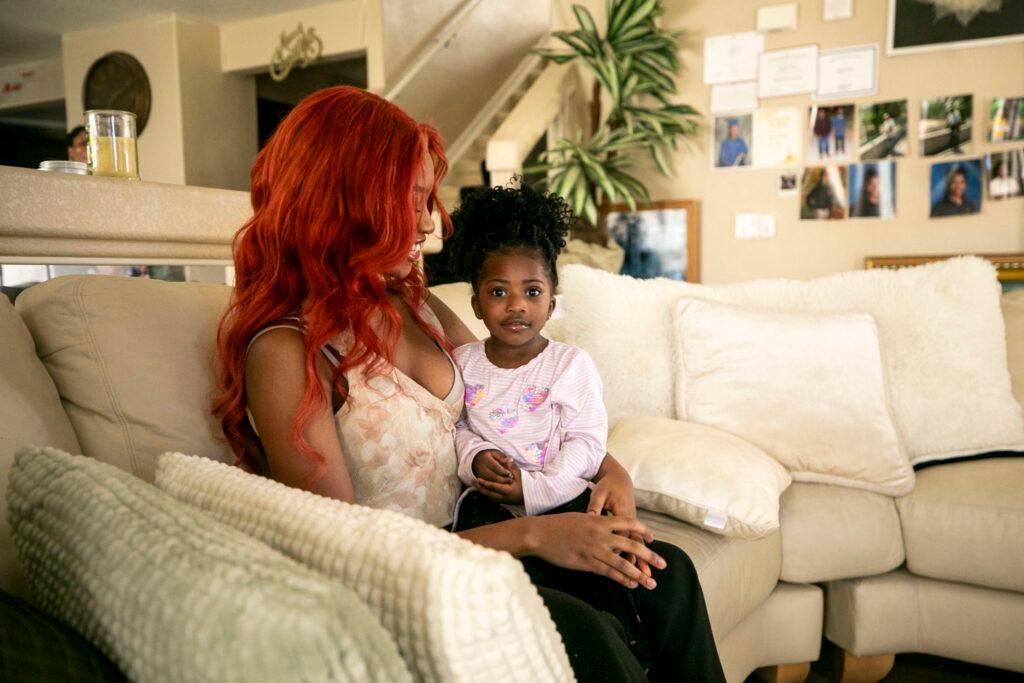
“Coming from nowhere to come to America, having these children and for them to go to these wonderful schools. I wanted that life. I didn't get that life. I didn't make room for myself to get that life. So, I've worked hard and asked God to help my children live that life that I wanted that I didn't get. It’s a beautiful thing.”
Parker said she is blessed to have three daughters who’ve done so well.
“These children are children of God.”
Hard work, talent and opportunities
Kaylyn attended DSST school in Green Valley Ranch – a school she says pushes you as far as you are capable. She tried out various science, math and engineering pathways.
“You could do anything at that school honestly,” she said.
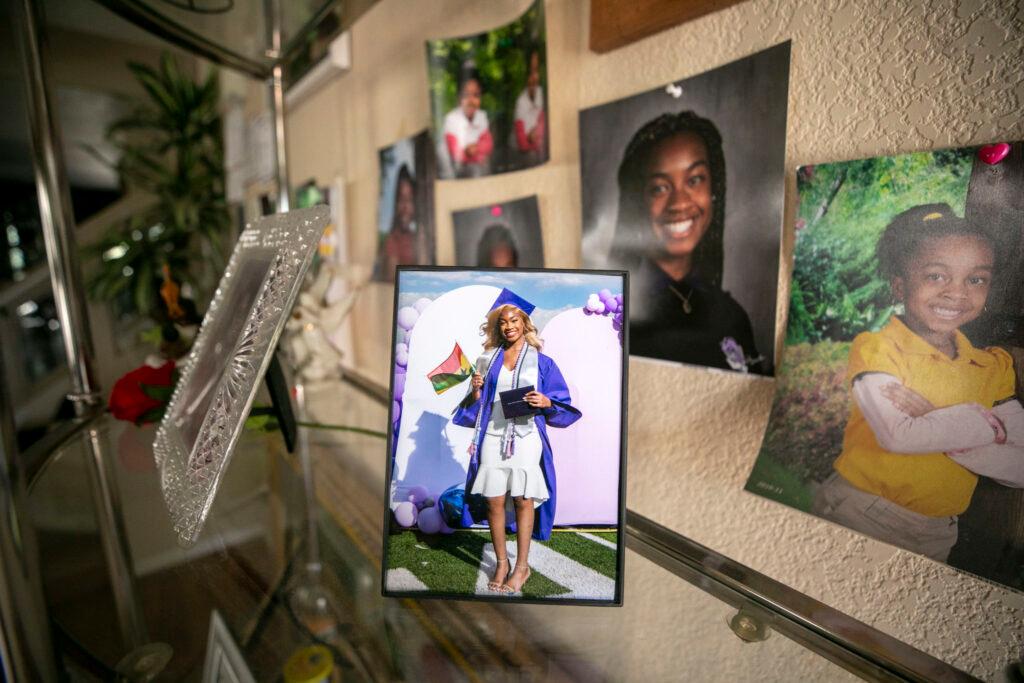
Kaylyn loves fashion and started a club where she and her classmates sketched, sewed and held clothing and food drives for those in need. Kaylyn got accepted into [HS]² a college access program for low-income students to spend five weeks three summers in a row in Carbondale, getting a jump start on science, technology and math.
Then a mentor encouraged Kaylyn to apply to QuestBridge. It helps high-achieving, low-income students get into top universities. Kaylyn had her doubts. The school was already hard. How much further could she go? And then there was the cost.
“I was afraid of that tuition bill, let’s be honest. It wasn’t realistic,” she said. “They are honestly really scary schools to apply to, like 3 percent acceptance rates, 4 percent acceptance rates. And when you compare yourself to other students, you're like, there's no way I can do this, especially as a woman of color, especially as someone low income, et cetera, et cetera.”
But her support group at [HS]², students like her who were struggling with the same things, helped her believe in herself. She went for it and got matched to Stanford with a full-ride scholarship.
First-year anxiety, eagerness
At Stanford, Kaylyn will start an exploratory science program before choosing a major: medicine, engineering, or biotechnology.
“I love finding solutions,” she said.
She said it’s critical that young women of color fill the gaps in male-dominated professions.
“You need to have that personal connection with whomever you're serving as a doctor. If you're not the same race as someone, for example, not to say you can't connect with them, but it's much easier when it's someone who looks like you who's had the same experiences as you.”
Whatever she does, Kaylyn wants to support her community.
But Kaylyn – who has a playful, artistic side sporting dyed electric orange hair today – has things on mind this week. She said she’s closer to her family than most. She said the hardest thing will be leaving her family where culture and religion are important and music played 24/7: traditional Ghanaian, hip hop, R & B.
She asks her sister Kayla, 25, a college graduate how she dealt with things when they got difficult.
“I think family was a big part of it,” said Kayla. “Like I would just go to mom and be like, hey, I'm kind of having a hard time. Just explain things to her and she really encourages and prays for me.”
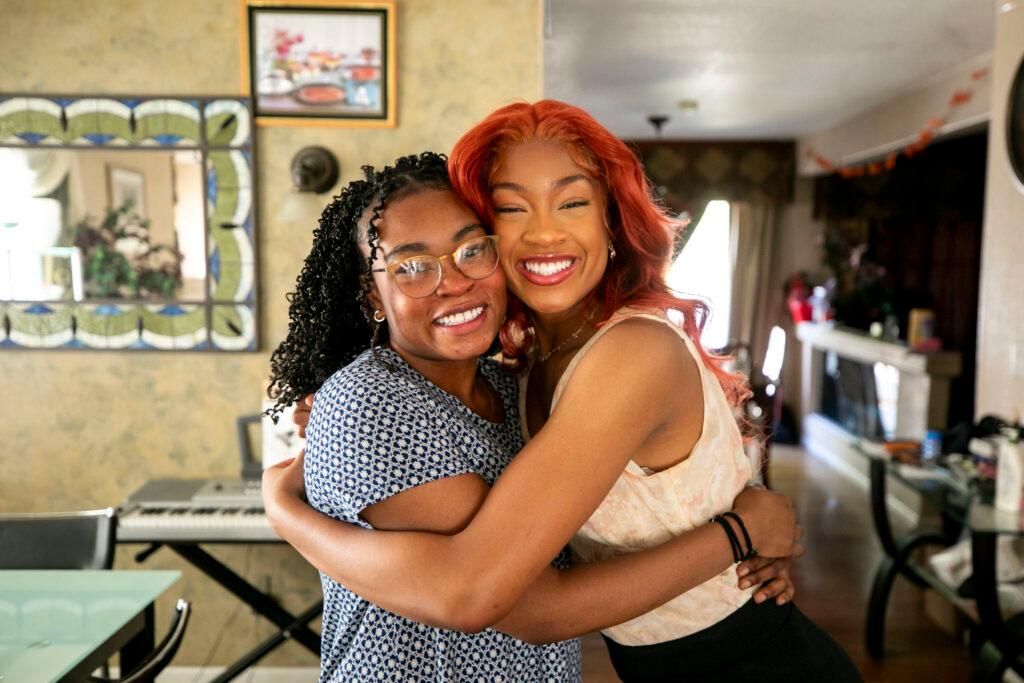
Kaylyn has more questions for her older sister. “How did you deal with making new friends when you got to college?”
Kayla advises joining a lot of clubs, career fairs, going to a lunch hall and sitting at a random table.
“Some people just like, ‘Hey, you want to come sit with us?’ You really have to just put yourself out there.”
Kaylyn said it’s a little bit terrifying.
“Especially coming from a community where a lot more people look like me moving to somewhere like that is intimidating because I don't know how they're going to react to me being in the same spaces as them.”
Kaylyn tells her sister she’s ready to take on the challenge.
“But I know it’s going to be super difficult.”
“We’ll always be here whether it’s in person or through the phone,” reassures her sister.
'I’m bringing you home now'
On the Sunday before she leaves for Stanford, Kaylyn attends church, the Gospel Light Assembly Of God tucked into a building on Parker Road. Her mom’s in the front row. Her dad’s working.
But Kaylyn’s in the back running the audio for the pastor and livestreaming the service. She loves it.
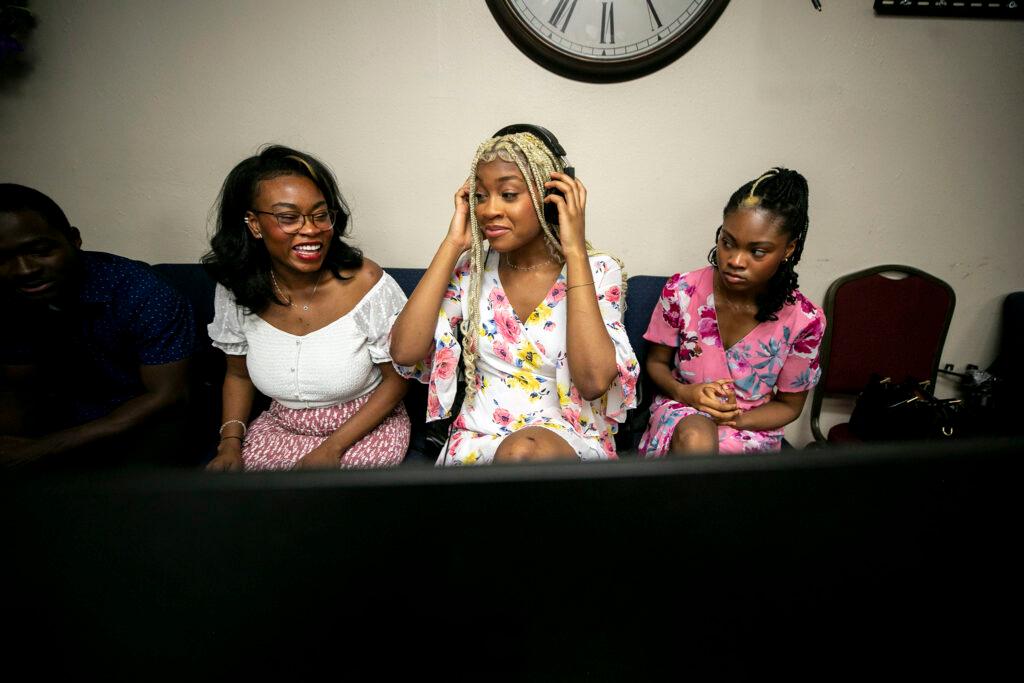
“Especially when it’s hectic and something goes wrong — of course that’s not a good thing — but I like the pressure and the challenge,” she said.
The service is in English and Twi, one of Ghana’s many languages. Some men are in suits, ties and bowler hats; the women are in fine Sunday dresses.
There is singing, dancing, clapping, weeping, praying, a spiritual rise and fall.
When there’s a pause from working the sound system, Kaylyn frequently slips her hands into her sisters – the oldest on one side, the youngest on the other. This will be her last Sunday service in Denver for a while.
The pastor, Reverend Seth Aidoo, calls Kaylyn up to the front of the church. He tells the congregation about her full-ride scholarship to study STEM.
Everyone cheers.
“You’ve made this whole house proud,” he said. “You’ve made this community proud. You are going there to make us proud. And know that we are with you all the way through… Make this grace rest on you now!”
“I am so proud of you!” a woman shouts from the congregation.
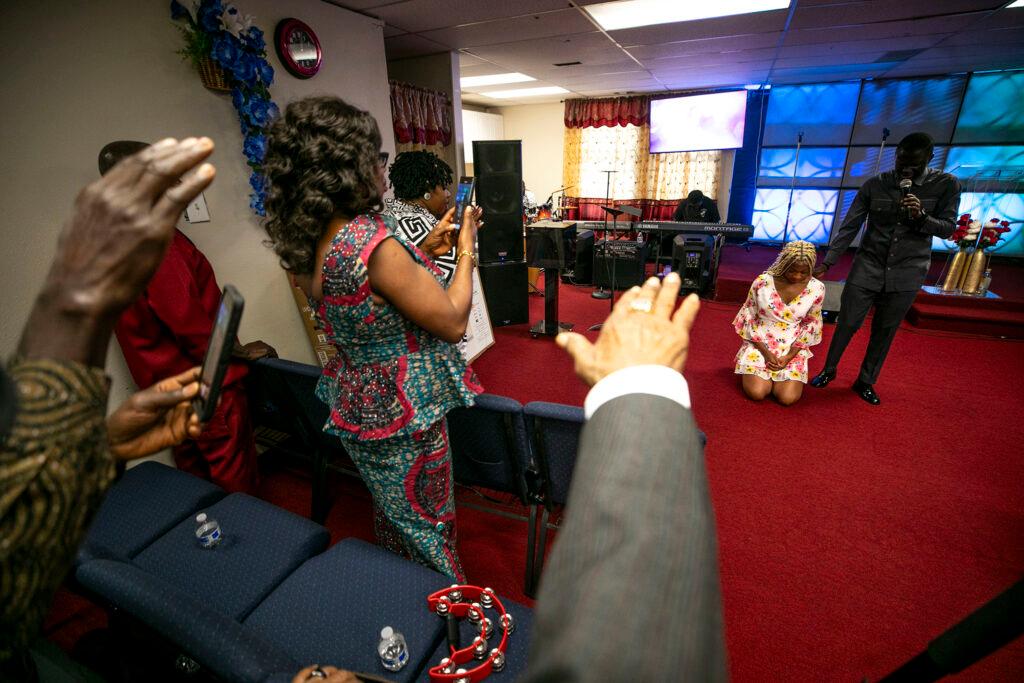
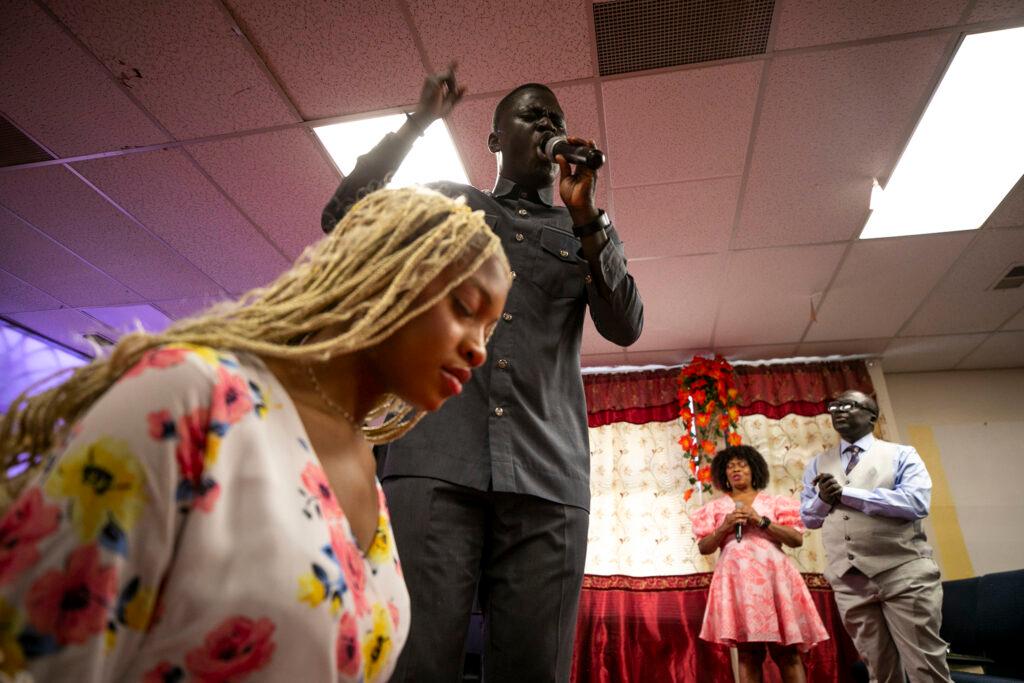
Right now, Kaylyn Noah is everyone’s daughter. Everyone’s hope.
The congregation sings and prays for Kaylyn, smiling shyly, her long white braids tumbling down a white flowered dress. Then Aidoo’s voice quiets. He asks Kaylyn to kneel in front of the congregation. He places his hand on her head for a blessing.
Kaylyn’s mom closes her eyes, covers them with her hands, overwhelmed.
Aidoo’s voice builds like a wave. He speaks in tongues. Then Twi and English until it rises to a crescendo of prophetic cries.
“In the name of Jesus, academically over your life, you shall excel! You will never fail! You will never fail! You will never fail! You will never fail! You will never fail!”
Tears fall down Kaylyn’s cheeks.
“I declare you blessed and so shall it be,” concludes Aidoo.
Kaylyn isn’t doing this journey alone. She takes the mike, talking through tears.
“You guys raised me,” she tells the congregation. “You made me the woman I am today. Thank you for helping (me) through my journey and I promise you guys I’ll make you proud. Amen.”
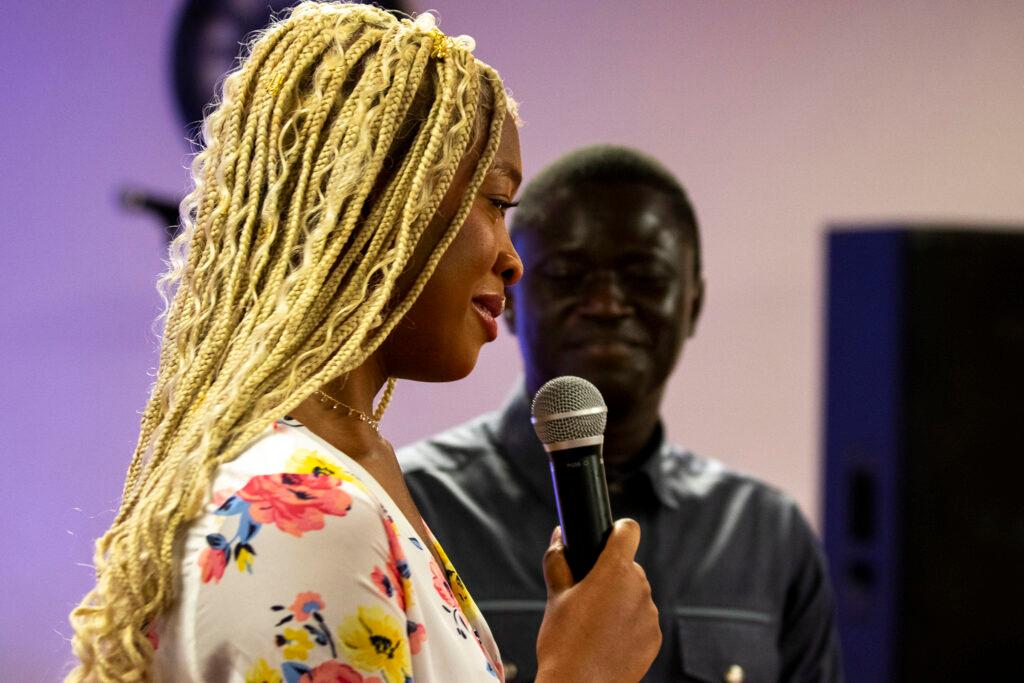
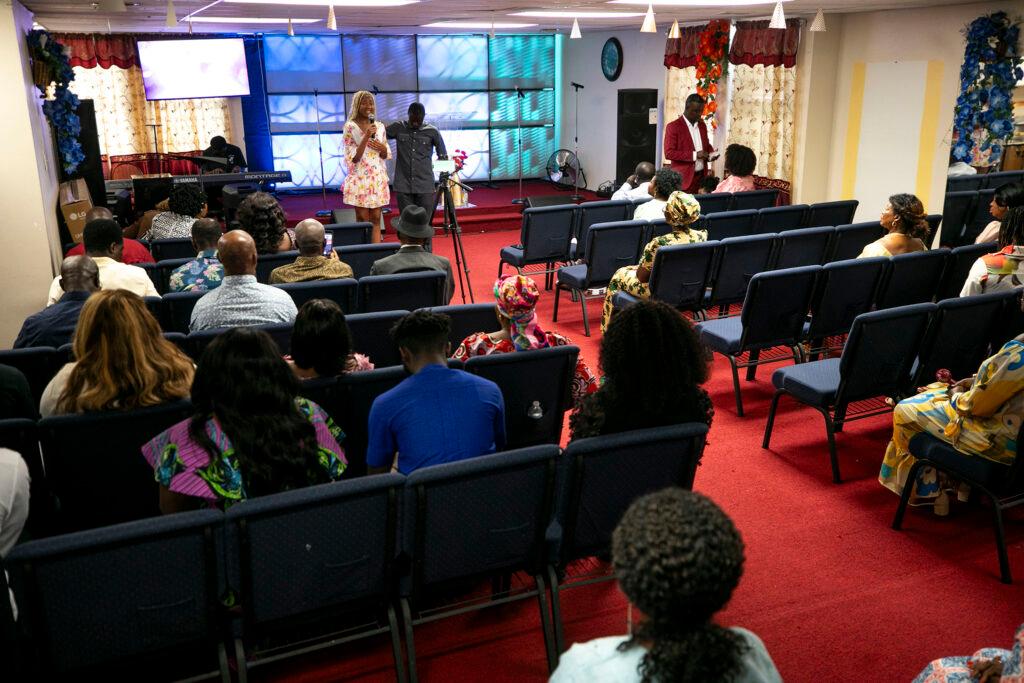
“Amen!” the congregation responds.
Kaylyn quietly exits the room into the hallway to wipe away tears. A few minutes later, her two sisters come to check up on her.
“It’s just, I've never felt that much love before,” she said. “You forget sometimes that people care about you this much. But having them cheer for me, having them pray for me, having them be genuinely so proud of me. It reminded me that I have people here that I can come back to any time.”
Kaylyn begins classes at Stanford next week.









